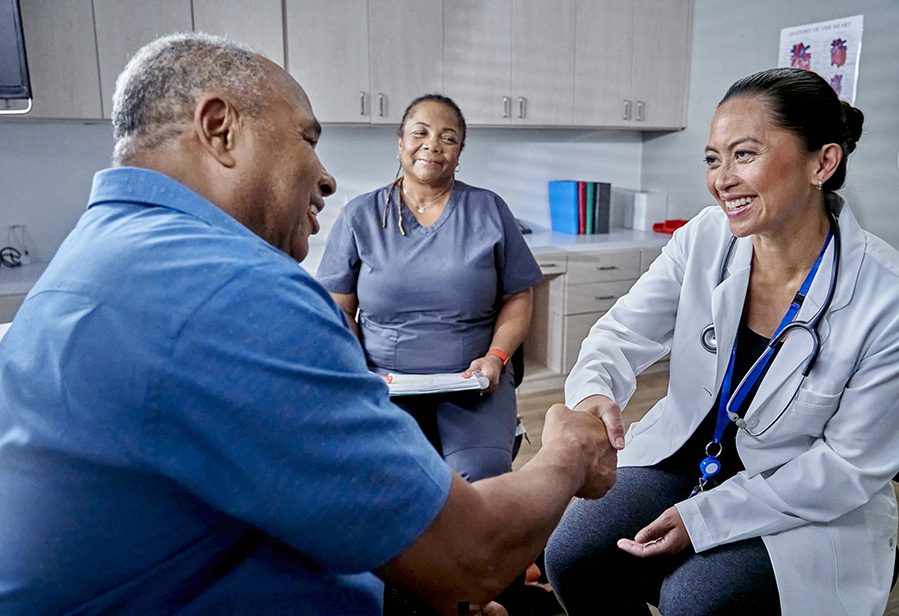Intermountain Health, Medical Director Dr. Steven Evans has a dream: Provide better monitoring of patients between their doctor’s visits. “Very often the brief time a patient spends in the doctor’s office is not a true picture of the patient’s health status,” says Dr. Evans. It’s no secret that those eligible for Medicare tend to suffer from more complex health conditions that compromise quality of life and lead to serious illness. Thus, Project Trident was born.

Project Trident’s name was inspired by King Poseido
Finding patients was easier than finding a technology partner, says Dr. Evans of the two-year search, “We needed a partner that had great equipment and flexibility. We initially partnered with two different companies but found their technologies couldn’t adjust easily to our needs. We needed easy-to-use equipment in which senior patients could open a box, plug in a device, and use it.”
The search ended with Harmonize Health. While this Silicon Valley company doesn’t possess the name recognition the other technology companies have, their nimble and talented team made them the best choice. The technology is basic and relies on a cellular network, iPad and easy-to-use monitors that are used once daily.
Once daily at a designated time, patients apply the monitors to measure blood pressure, oxygen saturation, weight, and in some cases, glucose (sugar) levels. These readings are instantly transmitted back to a medical command center where technicians analyze the readings in real time. If the monitor readings are outside of the parameters developed for that patient, a notification is triggered and the Intermountain Health’s Trident physician is notified.
The ability to capture vitals daily is invaluable. In addition, the primary care doctors get a vital sign report card snapshot to see how their patients are really doing between visits. Patients have shown an astonishing 94 percent compliance rate because the technology is so simple to use.
There have also been some unexpected benefits. Dr. Evans notes, “The most dramatic story was the life saved when our doctor’s call after their monitor showed troubling vital signs. We dispatched someone to the patient’s home and ultimately asked for help from EMS.” The paramedics found the patient was so weak they couldn’t even get out of bed and was near death due to dehydration. The patient was revived, sent to the hospital for a brief stay and has since made a full recovery.
The research period will conclude July 2020 but has already exceeded Drs. Evans and Pulicharam’s expectations. “So far, it appears that we are able to decrease admissions to the hospital by about 55 percent and we are decreasing ER visits by 68 percent,” stated Dr. Evans. Patient satisfaction due to the simplicity of this medical management has earned Project Trident a rating of 90 percent. For patients who consistently are within their range of optimal vital signs, the interval between requested vital sign readings can be increased. Some patients, therefore, only need to check themselves every three days.
So what does the future hold for Project Trident and its investigators? Dr. Evans enthusiastically talks about expansion to include 4,000 more patients and the involvement of a full disease management team. Harmonize is also developing improvements that include more patient-specific customizations as well as gamification so that patients can “compete” with other patients to further encourage participation.
Project Trident’s initial success has caught the attention of other healthcare entities and competitors. Several have already stated their intention to develop their own Trident programs. Like water off a duck’s back, Dr. Evans shrugs and encourages the program’s expansion far and wide, “We hope that the ability to keep patients healthier and free from medical complications like we’ve seen in Trident can be experienced by as many patients as possible, whether in our medical group and health plans or others.”





